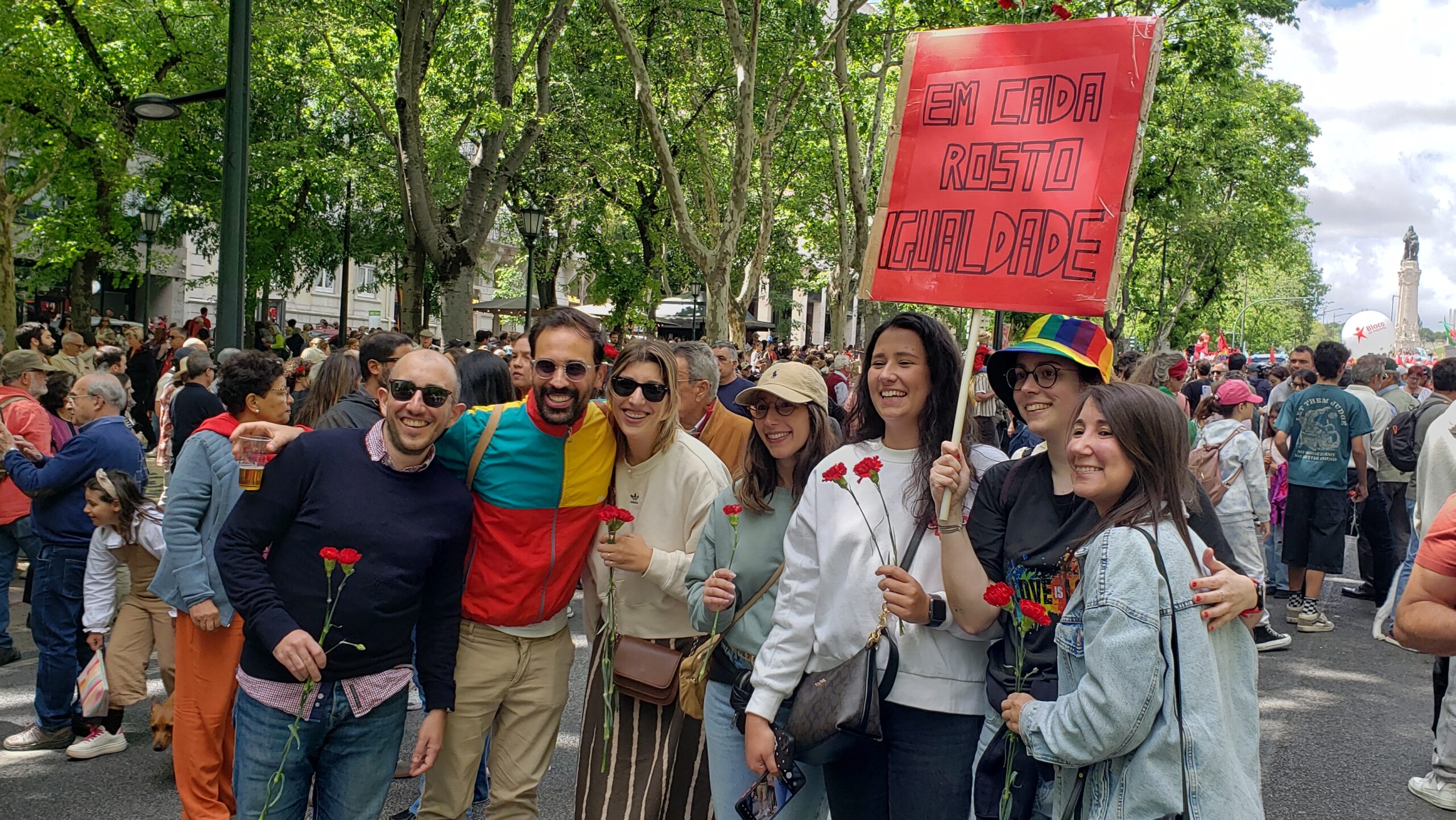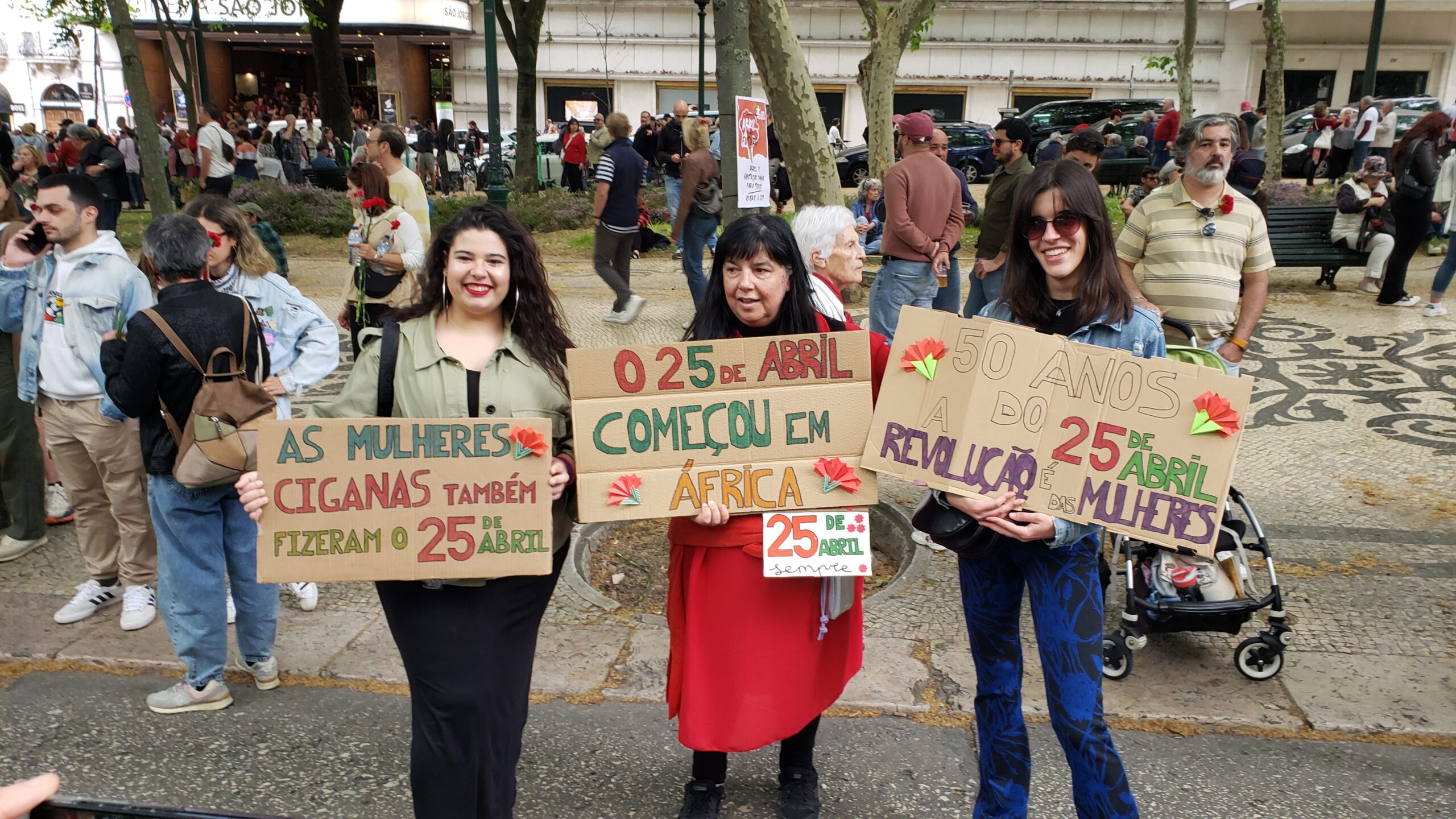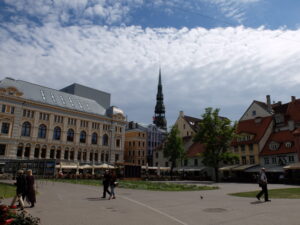Peace, liberty, the future…celebrators and demonstrators – directly acting on their right to express their views – repeated these themes during Portugal’s country-wide celebration of its liberation from the dictatorship of Salazar’s fascist regime.
On 25 April 1974, fifty years ago, three banned songs rang out over the radio. Junior soldiers marched on Lisbon, rejecting the iron fist of the dictatorship on behalf of the people, and peacefully tossed out the despised leadership. Red carnations happily, not guns, ruled the day – the result of a chance meeting with a soldier that day by a woman carrying a surfeit of carnations.
Today, on 25 April 2024, we shared in the celebrating and demonstrating of rights won in 1974, marching for a hope-filled world.
Remembering the Carnation Revolution
Fifty years ago the tanks rolled through Lisbon to overthrow the dictatorship, hands raised in V’s for victory or upraised fists – and putting carnations in the muzzles of their guns. Along the parade route, the crowd again cheers a soldier carrying a carnation, not a gun.
The festivities were surprisingly political, with many protests and demands for change alongside commemoration. These red flags herald communist youth. Earlier in the day, a broadcast “solemn ceremony” at the Portuguese Parliament saw heads of each party arguing against other instead of delivering pious sentiments. What better way to celebrate democracy, we thought, and a free country.
Young drummers on the march in the green of Portugal’s flag
Gay rights group with the sign, “Equality in every face.”
Women’s rights group with the signs on the left and right, “Gypsy women also made the 25th of April”; ” 50 years since 25th of April – the Revolution is for Women”. The middle sign (“25th of April began in Africa) acknowledges that the rebellions in the former colonies, notably Mozambique and Guine-Bissau, stirred the change in Portugal itself.
Portuguese in spirit!
(To enlarge any picture above, click on it. Also, for more pictures from Portugal, CLICK HERE to view the slideshow at the end of the itinerary page.)













